Column by Mahfuz Anam: DSA was legislated ignoring journalists

In September 2018, the most draconian, most criticised, and most objected to anti-media law was passed in Bangladesh, ignoring journalists. Today, its amendment process is on – according to the law minister – and once again the media professionals are nowhere in the consultation process.
On Wednesday, at a meeting organised by the Transparency International Bangladesh (TIB), Anisul Huq, our law minister, said the DSA would be amended by September this year. Is he buying time till then, when he may say it is too close to the elections and there are many urgent things to do? This doubt is not based on unfair cynicism, but on the fact that he said the same thing so many times and on so many different occasions, including to the international community. For his credibility's sake, we hope he means it this time.
But the process appears to be the same – ignoring journalists and letting bureaucrats run the show. And we can guess what they will produce, as they are trained to be against freedom of expression, freedom of thought, and freedom of the media.
The law minister said that "we have nearly completed reviewing the technical recommendations on the law made by the UN Human rights wing," which were communicated by UN High Commissioner for Human Rights Volker Turk in March. The minister further revealed that a committee – comprising members from the legal and parliamentary divisions, from home and foreign ministries, from the ICT, law and justice divisions – is working on amending the law and have met "two or three times."
We are delighted to hear it. But where are we – the journalists – in this process?
The group that has suffered many jail terms, innumerable arrests and most harassment, and the profession that has been devastatingly crippled, and which has most virulently objected to this law, have not been involved in this process. No representatives of journalist unions or editors' bodies have so far been invited to be a part of this discussion. Why this shutting out of journalists and editors? From the very start, amending the DSA has been one of the strongest and most persistent demands of the Sampadak Parishad.
The last time some of us were brought into the scene at the Parliamentary Standing Committee discussion stage was in 2018. All the objections we raised and amendments we pleaded for were totally ignored. Later, we realised the ritual was staged to enable the law framers to say that journalists were consulted.
But that was four and a half years ago. After our experience of oppression of journalists since the law was passed, the doublespeak that we saw the ministers indulge in, the numerous false promises that were made about processes to be followed before arresting a journalist and examining those who were victimised over the last four and a half years under the DSA, we have been forced to come to the conclusion that the DSA is such an oppressive law, such an anti-free-press law, and it is so structured that it would be better to make a new law focused on fighting cybercrimes than to amend this one.
And here's why. The DSA has 20 provisions for punishment, of which 14 are non-bailable. Can a law start by punishing an accused without due trial? Denying bail means the accused has to suffer imprisonment from the moment he or she is taken into custody, even if he or she is found completely innocent by the court. Bail is denied only to habitual and hardened criminals whose staying out of prison poses a real and immediate threat to society. Are journalists considered to belong to this category? The sentences are on average four to seven years long, with the lowest being one year and the highest being life-term. Making 14 out of 20 sections non-bailable makes the purpose of the law abundantly clear – it is to punish and create fear, not dispense justice. And journalists are to bear the brunt of it.
At present, there are nine laws that directly or indirectly affect media freedom. Three more are in the advanced draft form. The draft of the amendment of the Press Council Act, which has not been shared with the media even after repeated attempts, brings the total to 13. In addition, there are initiatives by the Department of Film and Publications (DFP), an arm of the information ministry, to further jeopardise the prospect of print media's survival by attempting to restrict the online presence – especially of multimedia – of existing newspapers.
Speaking about the DSA, Information Minister Hasan Mahmud said on Wednesday that "misuse of the law must be stopped." We welcome this statement and would like to know from when. As the minister directly dealing with journalists, his pro-action in stopping its misuse – which he himself said he wants – would be most welcome and earn him our gratitude. We bring to his notice that six global rights bodies – Amnesty International, CIVICUS, Committee to Protect Journalists, Human Rights Watch, Reporters without Borders, and International Federation for Human Rights – jointly stated that 56 journalists were targeted in Bangladesh in the first three months of 2023. This makes for more than 18 journalists per month. Dhaka-based Centre for Governance Studies (CGS) reported that, since its inception in 2018, a total of 339 DSA cases have been filed against journalists.
On the occasion of World Press Freedom Day, the UN secretary-general said free media is a guarantor of all other freedoms and rights. Conversely, absence of free media sees a definite erosion of all rights, especially human rights and democracy. The whole world is an example of the above. Only countries that have free media provide stable and rights-based societies. The others show many prospects for a while, but generally falter later.
Japan and South Korea provide interesting examples in Asia where democracy and free media played a crucial role in building their modern-day societies.
Japan adopted democracy and free media immediately after its defeat in World War II, and stunned the world with its rejuvenating capacity, sustaining success in the 60s, 70s, all the way till the present day.
South Korea adopted democracy after several bouts of military and quasi-military dictatorship, and proved that a rights-based society that enshrined all freedoms, including freedom of the media, was the best guarantee for sustained development. Being such a small country, it has proved what democracy and freedoms can do even though it has such an aggressive neighbour.
Both these countries allude their brilliant economic success to institutionalising democracy – not only making the appropriate laws but, more importantly, implementing them every day to every aspect of their societies.
We conclude with the two above examples because as we aspire to graduate from the lower-middle-income country status to the upper one, and advance to become a developed country later on. This cannot be achieved with physical infrastructure only. We need, and most crucially so, the infrastructure of the mind, of consciousness, of values, of the spirit – which only freedom can give, with media freedom being its inseparable component.
Mahfuz Anam is the editor and publisher of The Daily Star.

 For all latest news, follow The Daily Star's Google News channel.
For all latest news, follow The Daily Star's Google News channel. 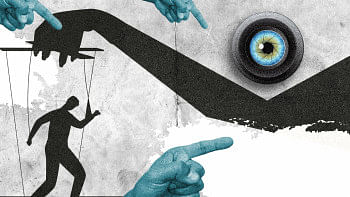
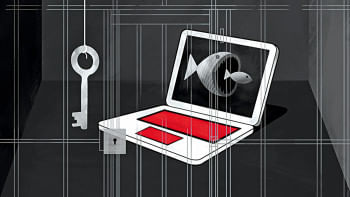
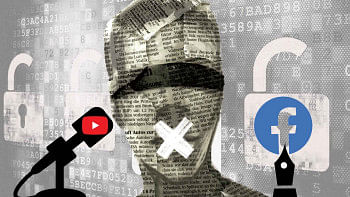




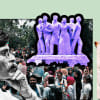
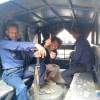





Comments